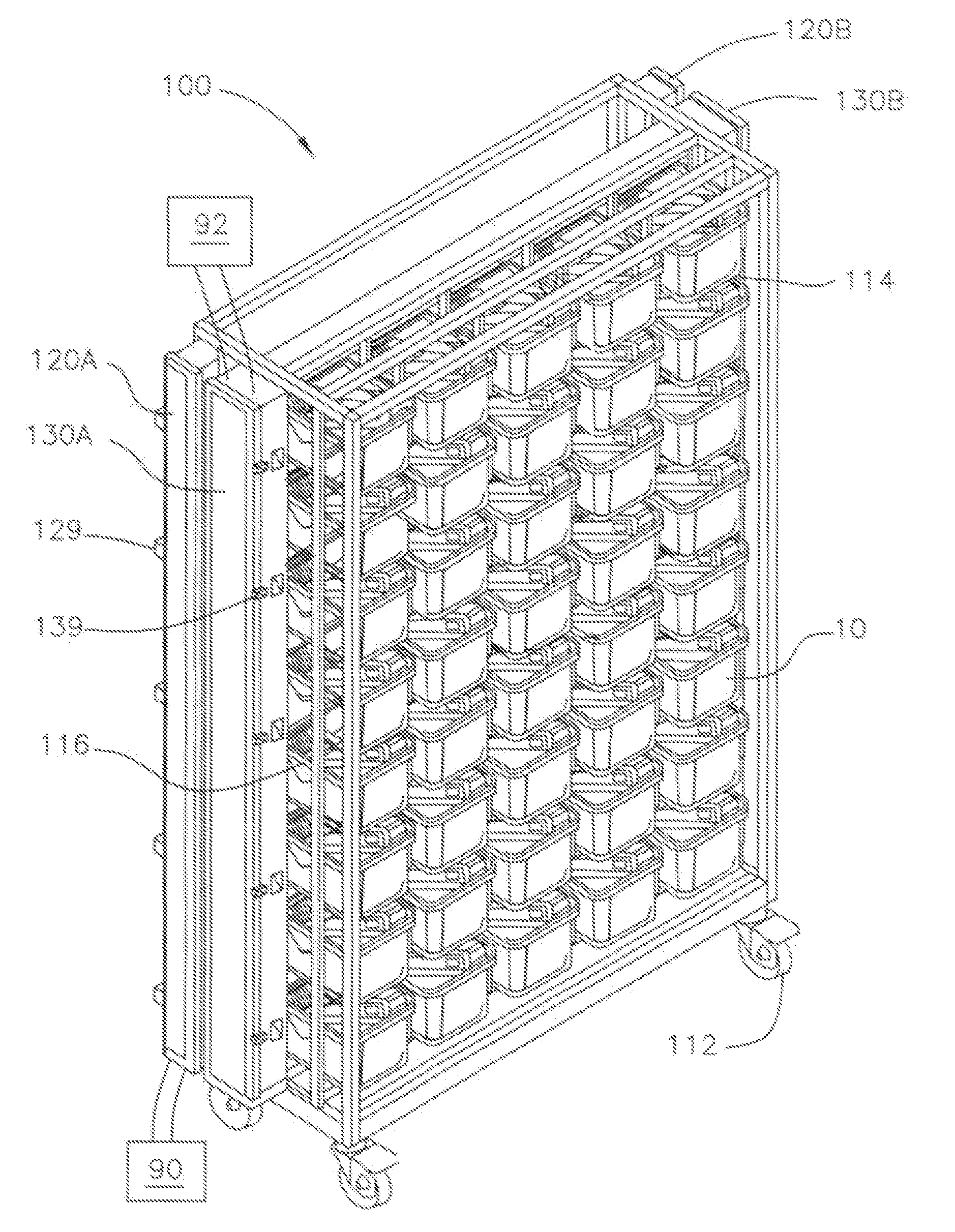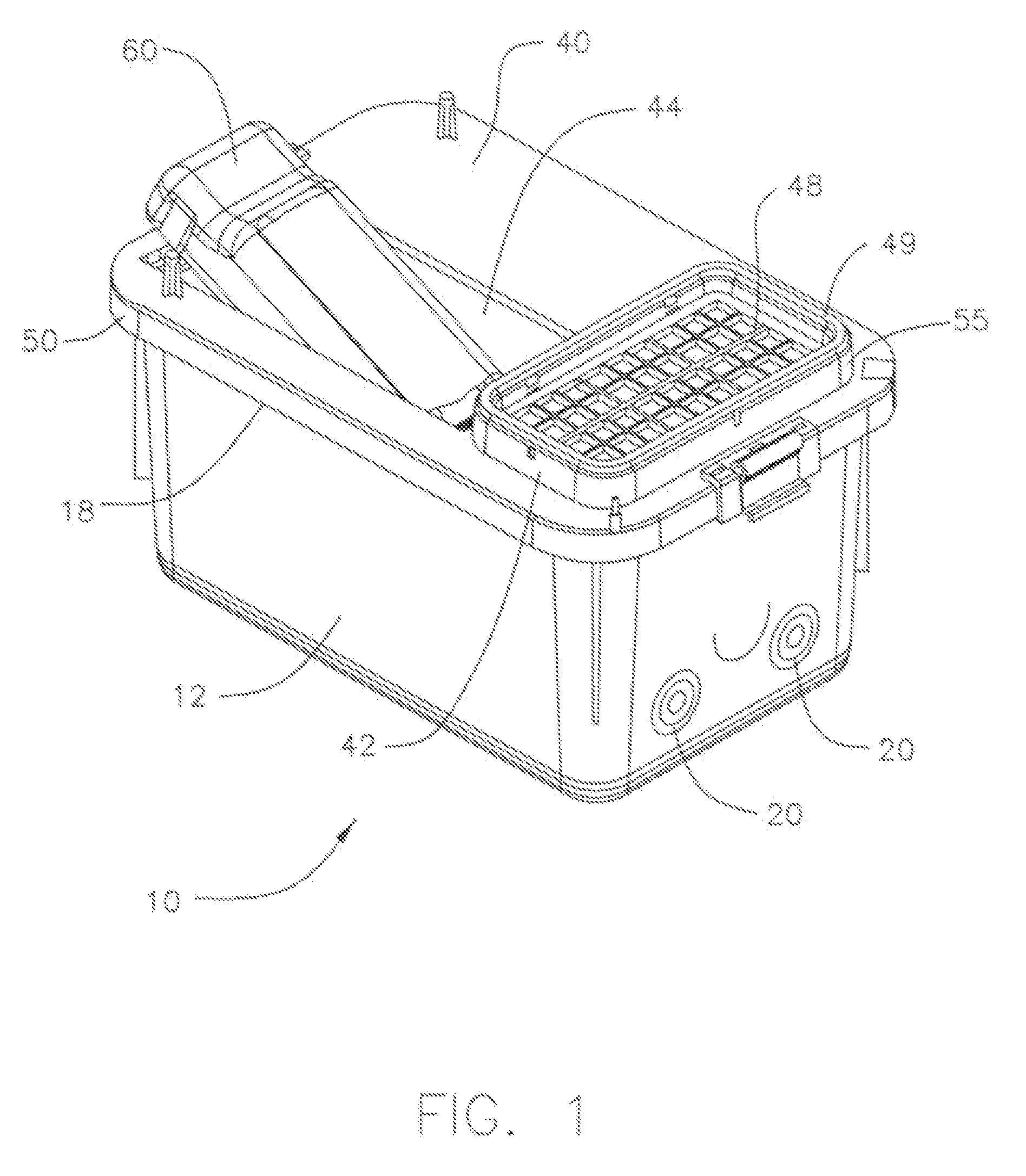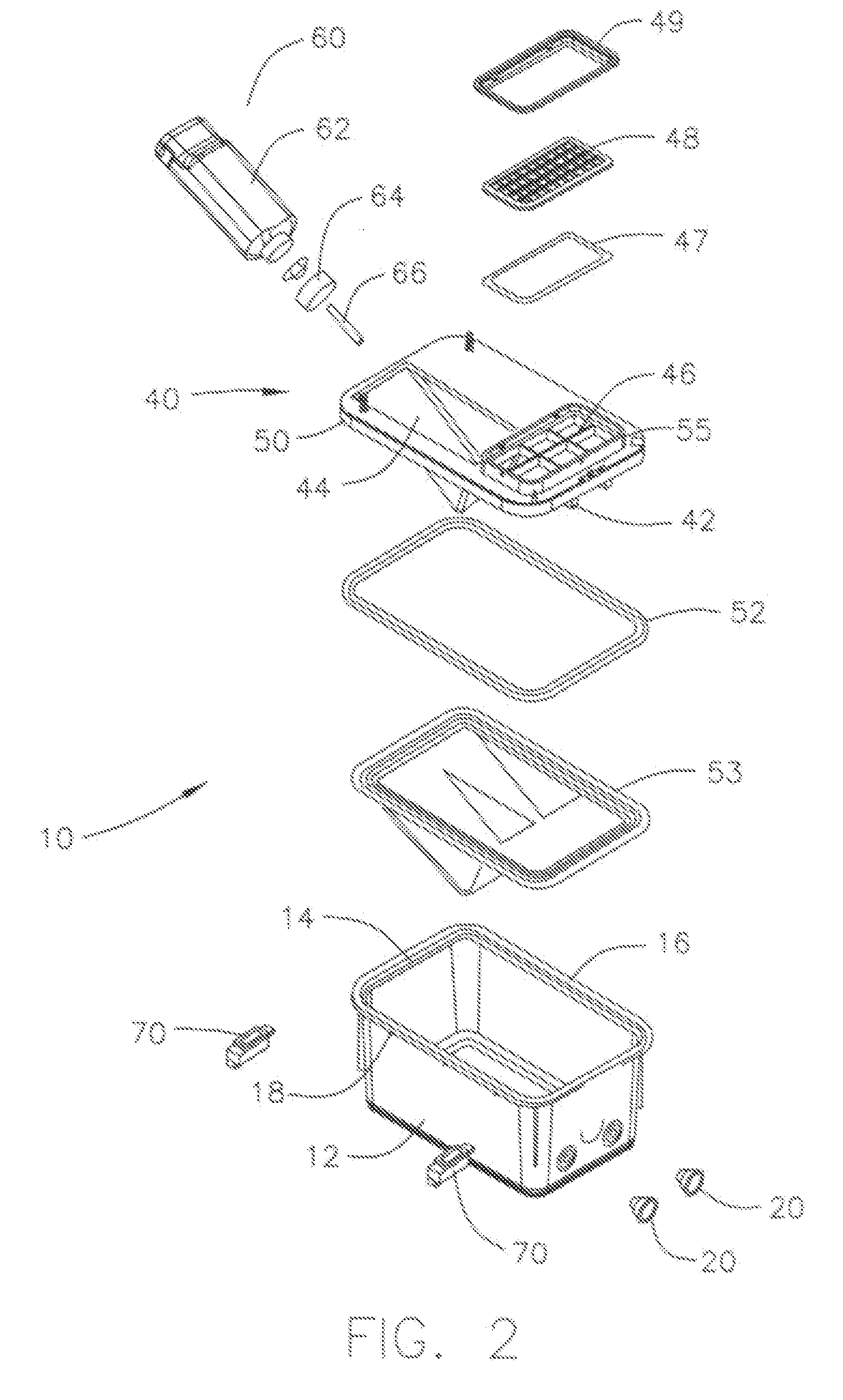Ventilated animal cage assembly
a cage and ventilation technology, applied in the field of animal cages, can solve the problems of increasing spreading disease, uneven airflow, etc., and achieve the effects of reducing the transfer of contaminants, reducing the risk of infection, and improving the overall health of animals
- Summary
- Abstract
- Description
- Claims
- Application Information
AI Technical Summary
Benefits of technology
Problems solved by technology
Method used
Image
Examples
Embodiment Construction
[0025]In one embodiment of the present invention, as illustrated in FIGS. 1 and 2, an animal cage 10 is shown, formed from a container base 12, a lid 40 and a water unit 60.
[0026]Beginning with container base 12, this portion is the principal housing for the animals. Typically, animal bedding is placed on the bottom and other such items including food dishes and animal toys. Base 12 is preferably constructed of a high durability polymer that can withstand prolonged use and frequent cleanings (e.g. autoclave), such as polycarbonate, polysulfone or polyetherimide, however the invention is not limited in this respect. Any polymer which is sufficiently durable for sustained use and cleaning may be used for base 12 in conjunction with the present invention.
[0027]As shown in FIG. 2, base 12 has a circumferential lip 14 that extends perpendicularly away from the top of the side walls and an upward flange 16, together configured to receive the connecting portions of lid 40.
[0028]Furthermore...
PUM
 Login to View More
Login to View More Abstract
Description
Claims
Application Information
 Login to View More
Login to View More - R&D Engineer
- R&D Manager
- IP Professional
- Industry Leading Data Capabilities
- Powerful AI technology
- Patent DNA Extraction
Browse by: Latest US Patents, China's latest patents, Technical Efficacy Thesaurus, Application Domain, Technology Topic, Popular Technical Reports.
© 2024 PatSnap. All rights reserved.Legal|Privacy policy|Modern Slavery Act Transparency Statement|Sitemap|About US| Contact US: help@patsnap.com










